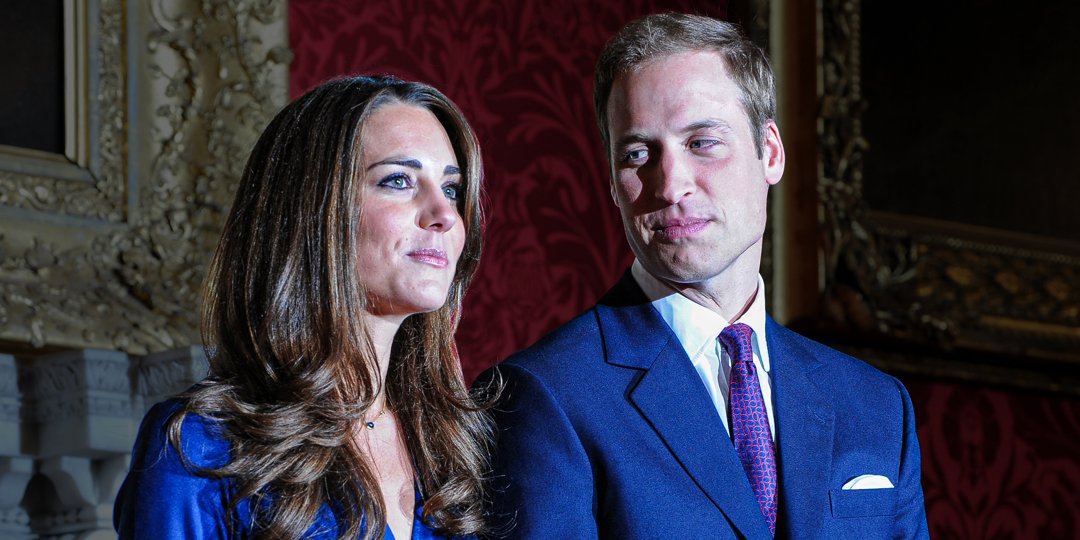
Prince William and Kate Middleton Ban Prince George from Having One Thing Most Children Own
In addition to the thing being banned, the Prince and Princess of Wales' eldest son faces a particular royal protocol, which experts have unpacked.
In a moment that has sparked much discussion across royal watchers and parenting forums alike, the Prince of Wales touched on parenting and revealed a certain something that Prince George — the child whom he shares with Kate Middleton — does not have.
Prince William divulged such in an interview with broadcaster Luciano Huck during his visit to Brazil on November 10, 2025. Although they are still children, as royals themselves, George and his siblings often have to follow certain royal rules.
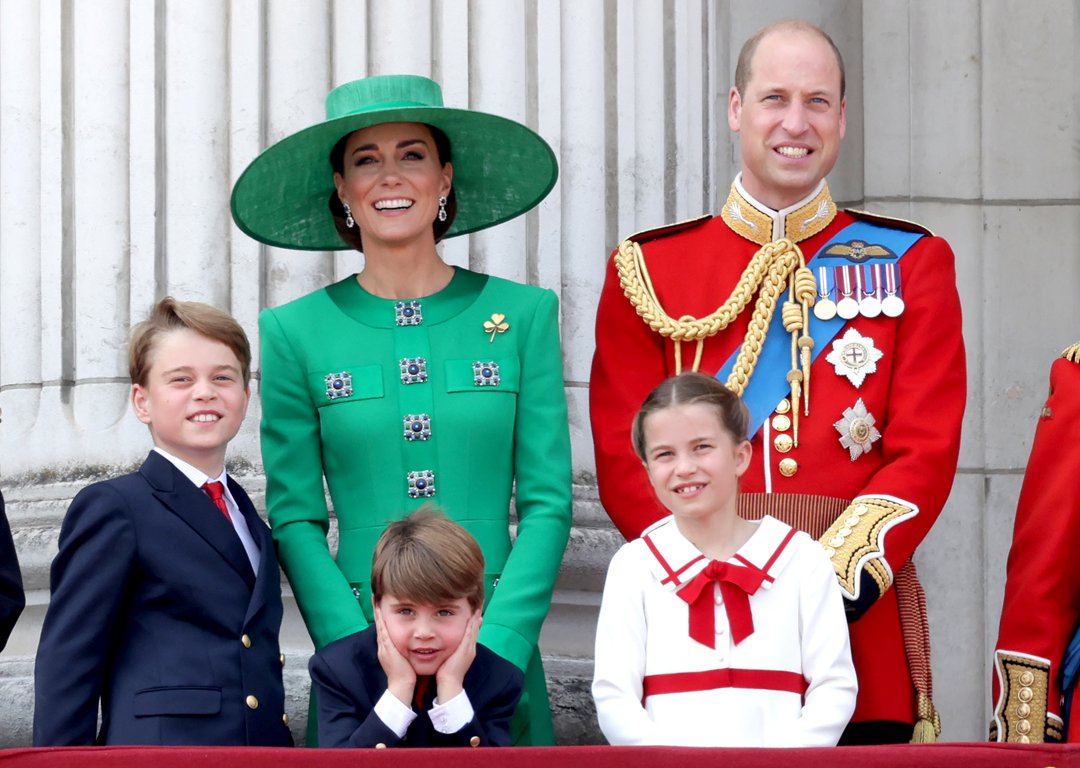
Prince George, Princess Catherine, Prince Louis, Princess Charlotte, and Prince William during Trooping the Colour in London, England on June 17, 2023. | Source: Getty Images
Prince William offered a rare glimpse into the inner workings of royal parenthood — one filled with modern-day dilemmas, communication challenges, and carefully drawn boundaries.
With his signature composure and wit, the Prince of Wales opened up about the evolving dynamics within his family as his children grow older and begin to encounter the pressures of today's hyper-connected world.
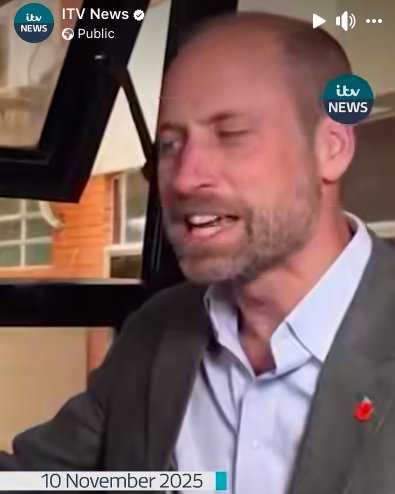
Prince William during his interview with Luciano Huck in Brazil, posted on November 10, 2025. | Source: Facebook/ITV News
Reflecting on his parenting approach alongside Princess Catherine, the Prince admitted that raising children in the digital age has prompted some tough decisions — especially as their eldest son, Prince George, continues to mature. "Every family has its own difficulties and its own challenges," he said, highlighting that there's no universal playbook for navigating those complexities.
The couple has embraced open communication with their children, even if it sometimes treads into uncertain terrain. "Sometimes you feel you're oversharing with the children; you probably shouldn't," he acknowledged. "But most of the time, hiding stuff from them doesn't work."
Their approach, according to William, involves offering their children broader perspectives and emotional clarity. He explained how discussing feelings and providing explanations helps prevent anxiety, "There's a lot more questions when there's no answers [sic]."
Yet even with the benefit of communication, some topics remain tricky — especially those that bring royal parenting into conflict with the norms most families take for granted. That tension became especially clear when the discussion turned to George — now 12 — and the age-related milestones that children his age often reach.
One topic in particular has become a battleground at home — and it's something most parents of kids George's age wouldn't ordinarily think twice about. "I think when George moves on to secondary school, then maybe he might have a phone that has no internet access," the Prince revealed, prompting visible surprise from Luciano.
When asked to clarify whether George had a phone now, William answered plainly, "No phones. No." His honesty about the growing friction this has caused at home was striking. "And to be honest, it's getting to the point where it's becoming a little bit of a like tense issue," he confessed, adding that despite the pushback, George understands the reasoning.
"We communicate why we don't think it's right. And again, I think it's the internet access I [sic] have a problem with," William reiterated.
Ultimately, Prince William explained that his main concern lies not with the device itself but with the vast and often unfiltered content that comes with it. "I think children can access too much stuff they don't need to see online," he expressed, noting the difference between smartphones and "old sort of brick phones."
But as George is primed to soon enter his teenage years, the challenges he faces extend far beyond screen time negotiations and internet boundaries. His twelfth birthday — celebrated on July 22 — marked not only a personal milestone, but a pivotal turning point in his royal upbringing.
According to long-standing royal protocol, heirs to the throne are traditionally discouraged from traveling on the same aircraft as their immediate predecessors — a rule intended to protect the line of succession in the event of an unexpected tragedy. For the young Prince, that would mean no longer flying with his father, who is next in line to the British throne.
The topic was dissected during a recent episode of the Daily Mail's Palace Confidential, where the panel reflected on what this transition might mean for the young royal.

Prince George and Prince William at the Wimbledon Men's Singles Final in London, England on July 10, 2022. | Source: Getty Images
Diary Editor Richard Eden referenced a precedent, noting, "When Prince William reached the age of 12, he stopped travelling with his father so they had separate flights. Obviously, that is to guarantee the line of succession."
However, while the rule may be rooted in history and concern for continuity, it appears that the Wales family has no immediate plans to enforce it.
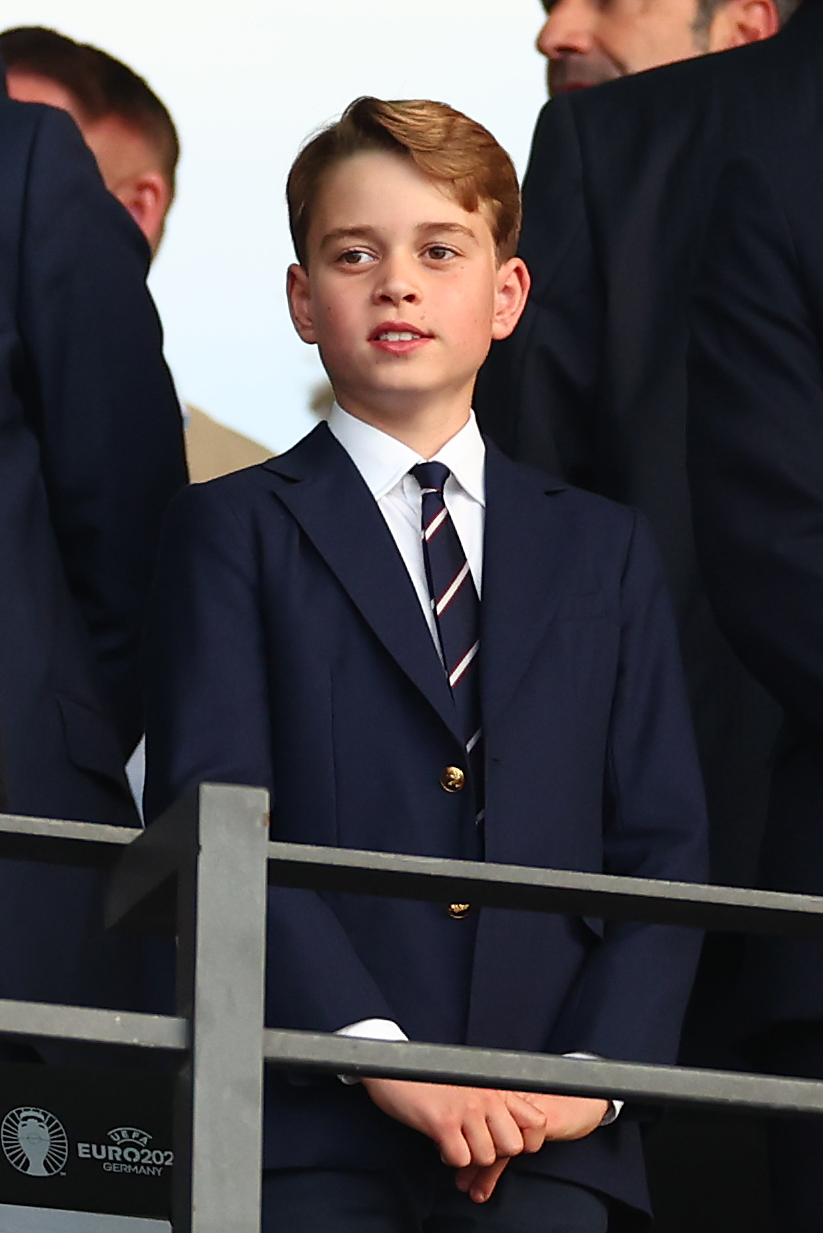
Prince George at the UEFA EURO 2024 final match between Spain and England in Berlin, Germany on July 14. | Source: Getty Images
Royal Editor Rebecca English relayed what she learned from her Palace sources, "I spoke to the Palace this week, and they were like, 'Well, it's kind of news to us.'" She added that her impression is the family "won't be changing their travel arrangements at all."
This revelation left some royal commentators puzzled. Show host Jo Elvin recalled hearing of the rule from her own childhood and was surprised by the Palace's seemingly relaxed stance. Richard, too, voiced concern over the lack of separation between heirs during travel.
"I personally find it very worrying," he admitted, before half-jokingly warning of the line of succession, stating, "After the Wales family, we have Harry and Meghan!"
"Come on, even though it's not great for the environment, please put George on a separate flight and a separate helicopter from his father," Richard pleaded. Even so, it seems the young prince may still be allowed to travel with his mother — a compromise noted during the segment.
But this approach doesn't align with the concerns once held by King Charles III and the late Queen Elizabeth II, both of whom were reportedly uneasy with the Wales family traveling together, especially with William often piloting the aircraft himself.
"According to Robert Jobson's book, the King didn't like William flying the whole family and urged him to stop," Richard divulged. "It is something that Queen Elizabeth expressed her concerns about as well."
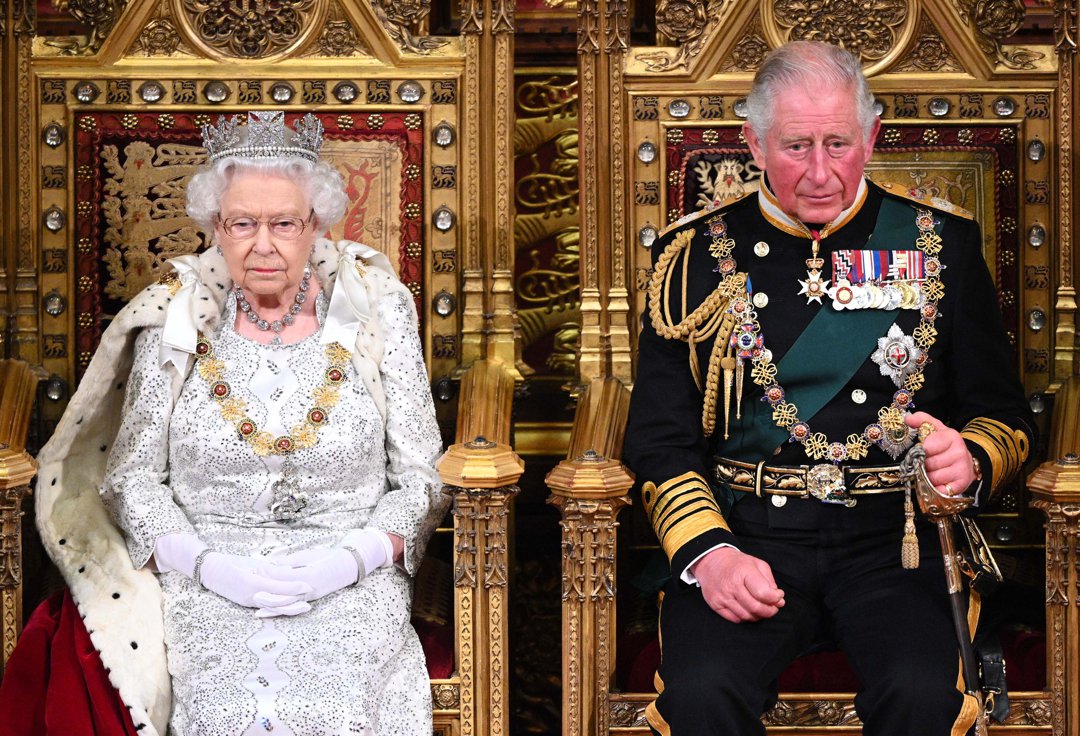
The late Queen Elizabeth II and then-Prince Charles III at the State Opening of Parliament in London, England on October 14, 2019. | Source: Getty Images
The origins of this protocol, while unnerving, are steeped in painful royal history. Royal commentator Richard Fitzwilliams pointed out that several family members have died in aviation-related incidents, reinforcing the family's cautious stance over the decades.
These include Prince William of Gloucester's death in 1972, Prince George, Duke of Kent's fatal crash in 1942, and Princess Cecile — Prince Philip's sister — who died in a 1937 plane crash while pregnant. He also noted that the practice of separating heirs mirrors policies in other global institutions like presidencies.
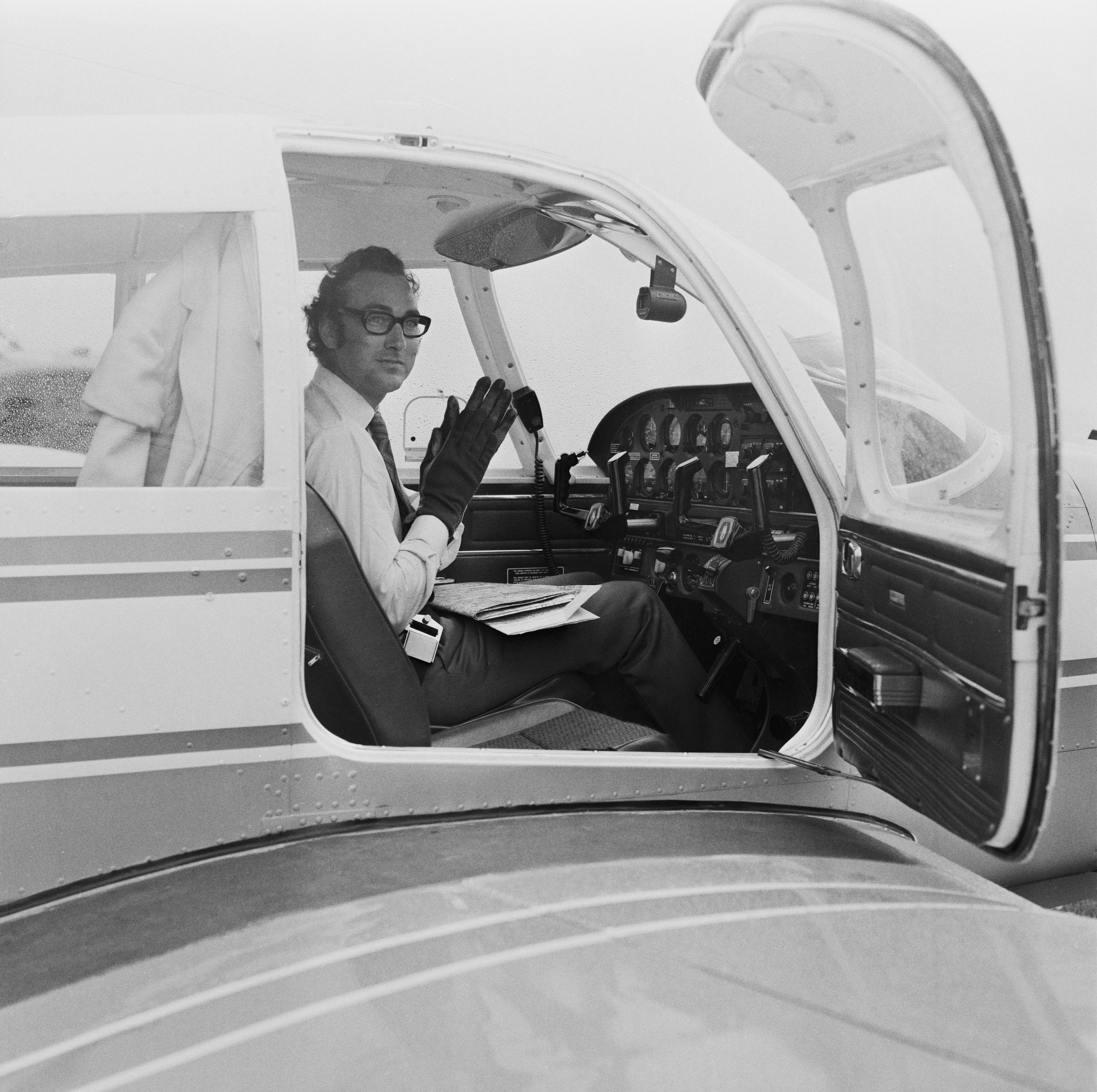
The late Prince William of Gloucester competing in the King's Cup Race on August 14, 1971. | Source: Getty Images
Still, whether or not this policy is observed, it's just one of many quiet but impactful rules that shape the lives of George and his siblings, Princess Catherine and Prince Louis.
From always traveling with a change of black clothing — a precaution introduced after Queen Elizabeth was caught without mourning attire upon her father's death in 1952 — to being prohibited from eating shellfish on royal tours to avoid food poisoning, the children are constantly reminded of the legacy they were born into.
Even their wardrobe is governed by unspoken tradition: boys in shorts, girls in dresses — a nod to formality that persists in modern monarchy.
Following William's candid admission about his eldest son's lack of a smartphone, the public response online was swift and deeply divided. While many praised the royal for taking a firm stance on digital boundaries, others expressed concern over the practicality of such a decision in today's world.
One netizen remarked, "Yeah I can see why. But George will come to thank his father in due time when he starts to realise the benefits of never owning a phone at such a young age. It's also a massive privacy issue with all the hacking going on left right and centre [sic]."
Another agreed, "Well done .. [sic] someone needs to break this trend! For tons of reasons ❤️." Echoing this sentiment, someone else commented, "too [sic] young to go into wild space." "Good for him. I wish more parents were like that," chimed in another. However, some people shared a more nuanced perspective — especially parents navigating similar challenges.
"It's a difficult choice for Prince William, my children are around his age and [sic] I thank God that we didn't have to wrestle with this," one person admitted. Another added, "Phones are how we stay in touch, keep our kids safe, and organise daily life. It's not about giving in to screens, it's about surviving without the help they have."
Others pointed out the differences between royal life and the everyday realities of most families. "I think Prince William is right...but it's just not practical for the 'average' 12 year secondary school kid not to have a phone. Our kids have to take themselves to and from school and its a safety issue for parents to be able to track them. Clearly that's not an issue for Prince George [sic]," observed one commenter.
Meanwhile, a few spectators raised concerns about the public nature of the revelation itself. "Imagine how George feels, that this is made public. Good move but it should be private [sic]," one individual noted thoughtfully.
Another offered a more sobering reflection, writing, "Imagine if he read all the stories about his family! Daresay other kids tell him."
The comments highlight just how much this one parenting decision has sparked a broader conversation — not only about privacy and safety, but about the deeply personal decisions families make in an increasingly connected world.
